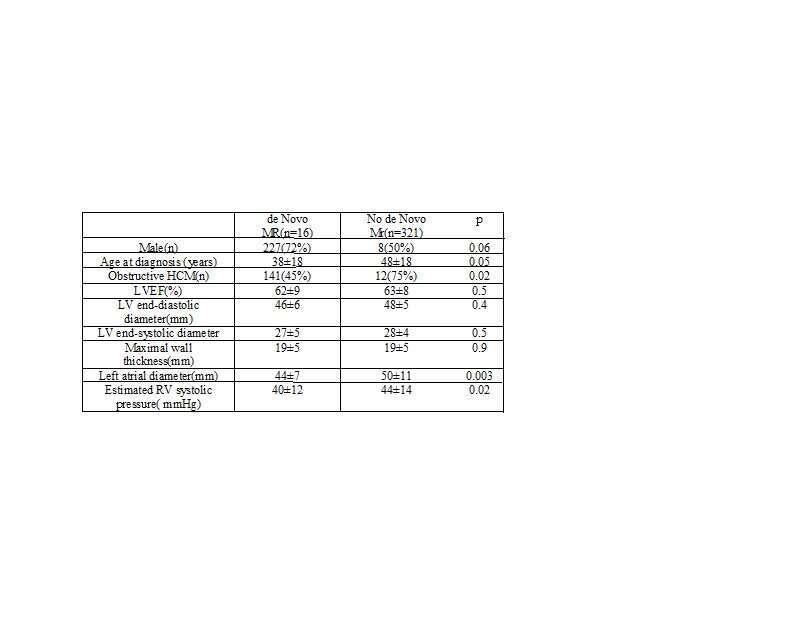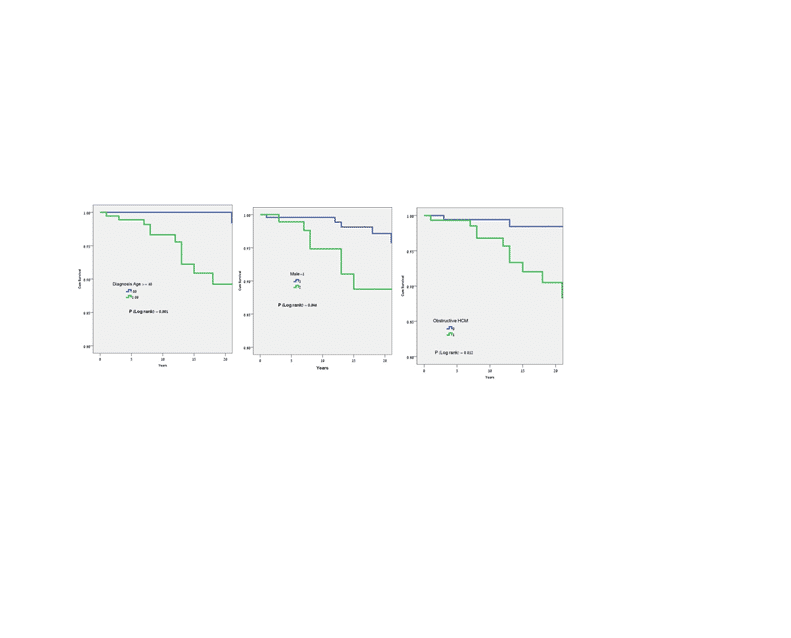Introduction:The development of de novo mitral regurgitation(MR) due to associated intrinsic mitral valve disease(IMVD) in patients with hypertrophic cardiomyopathy (HCM) has been sporadically described.
Purpose :In this study we evaluate the etiology, the prevalence and the factors associated with prognosis in this association.
Methods:Our tertiary care HCM clinic database includes 337 patients with a complete clinical and echocardiographic follow-up. The development of de novo MR due to associated IMVD was diagnosed by echocardiography by the presence of an anatomically abnormal MV leading to a new MR jet not related to the systolic anterior motion of the MV or to LV remodeling.
Results: Sixteen patients (4.7%) with IMVD and de novo MR causing severe heart failure were identified. On table 1 their clinical and echocardiographic characteristics are compared to the overall HCM population
Sixteen patients (4.7%) with IMVD and de novo MR causing severe heart failure were identified. On table 1 their clinical and echocardiographic characteristics are compared to the overall HCM population

Among the patients with de novo MR, 9 patients had a flail posterior MV leaflet, 2 prolapse of the posterior leaflet and 1 prolapse of both leaflets. Four patients had echocardiographic and/or histopathological evidence of myxomatous changes.The remaining patients had severe calcific degeneration of the valve or fibroelastic tissue deficiency.
Kaplan Mayer analysis showed that the propensity to develop de novo MR was significantly higher in patients with late onset disease (diagnosed after the age 40) , in patients with left ventricular outflow obstruction and in women(figures). 
Conclusions:
IMVD causing severe MR was found in almost 5% of our HCM patients. This etiology needs to be considered as a cause of heart failure exacerbation in appropriate patients because TEE and mitral valve surgery are often required.

